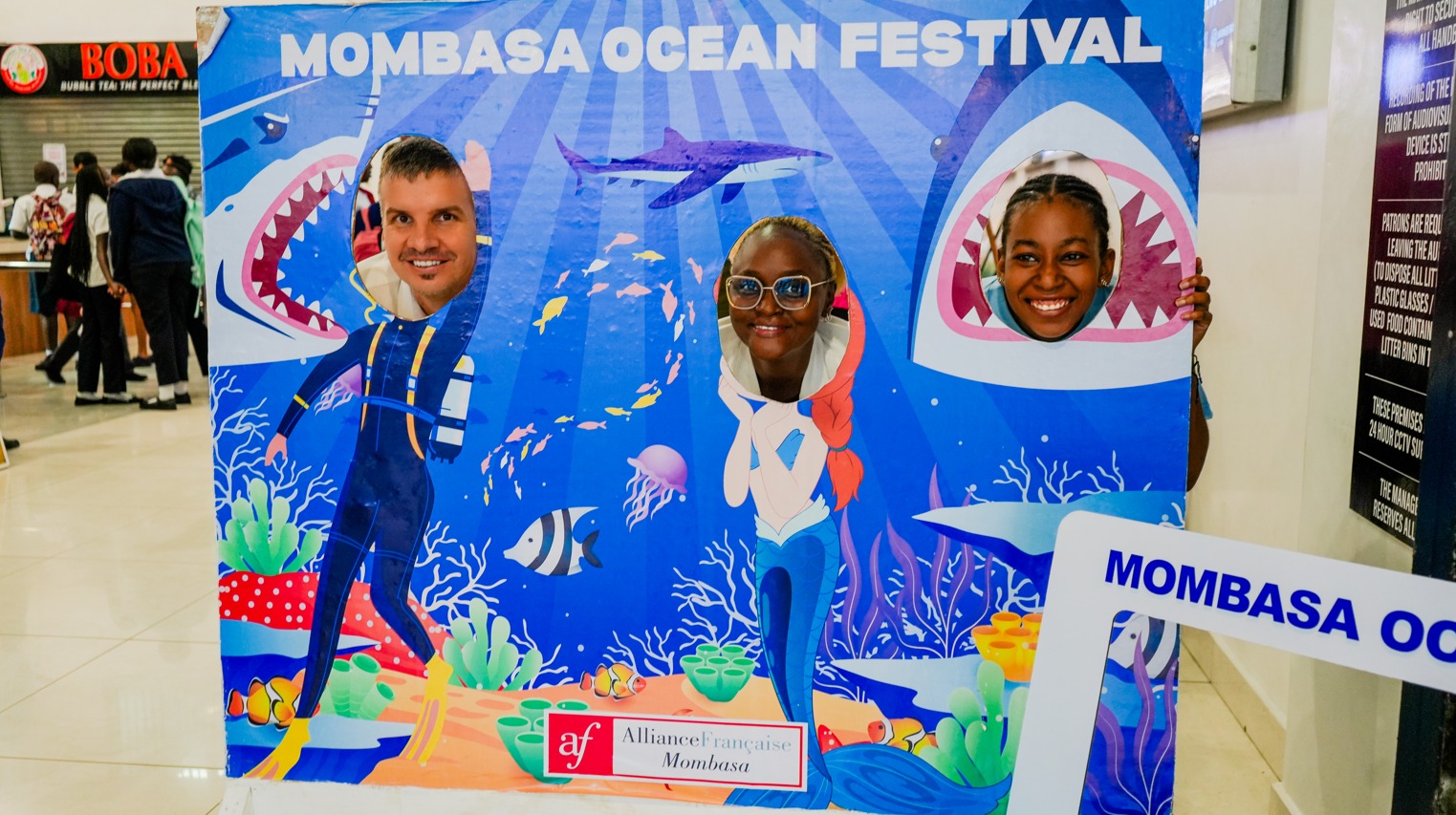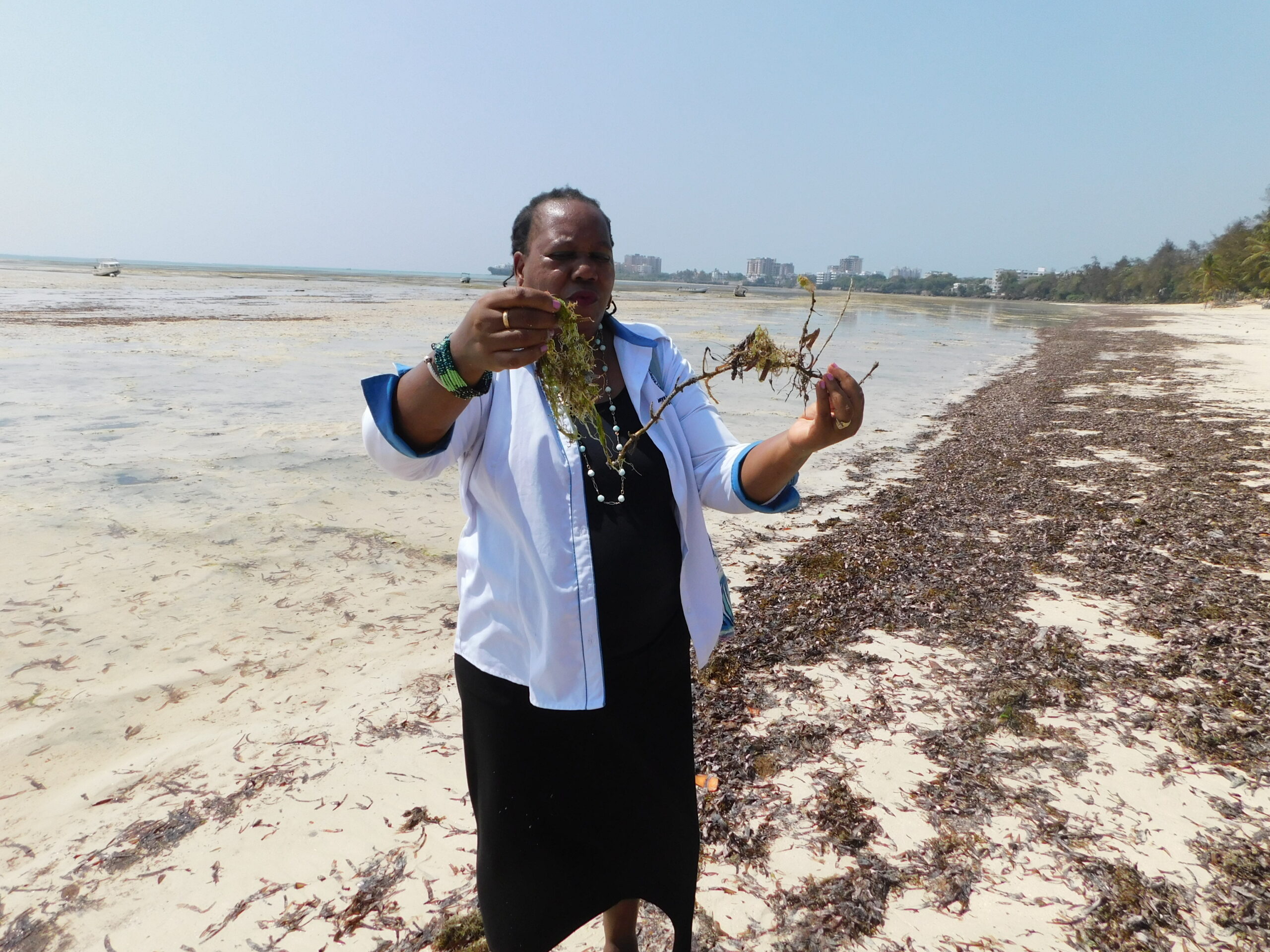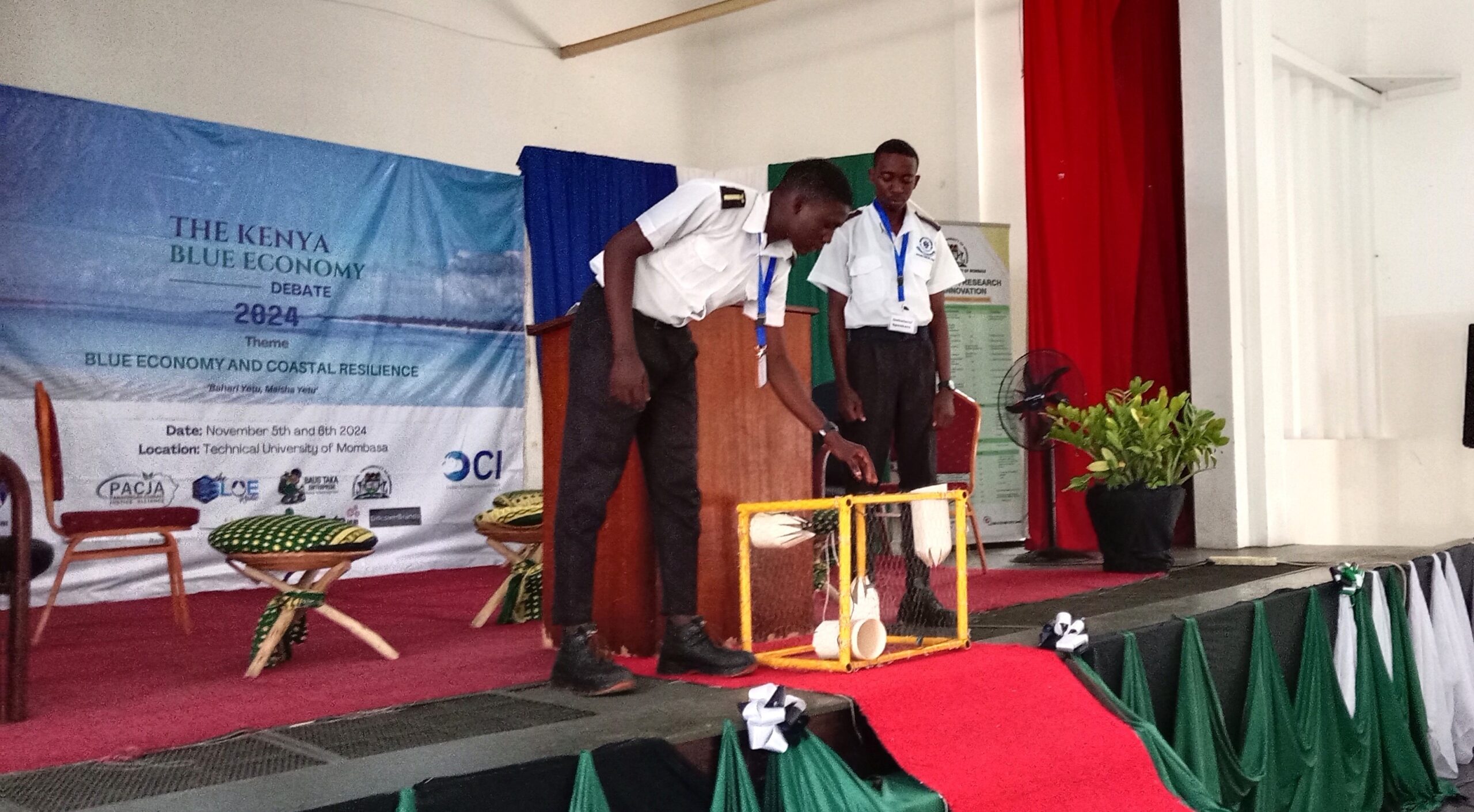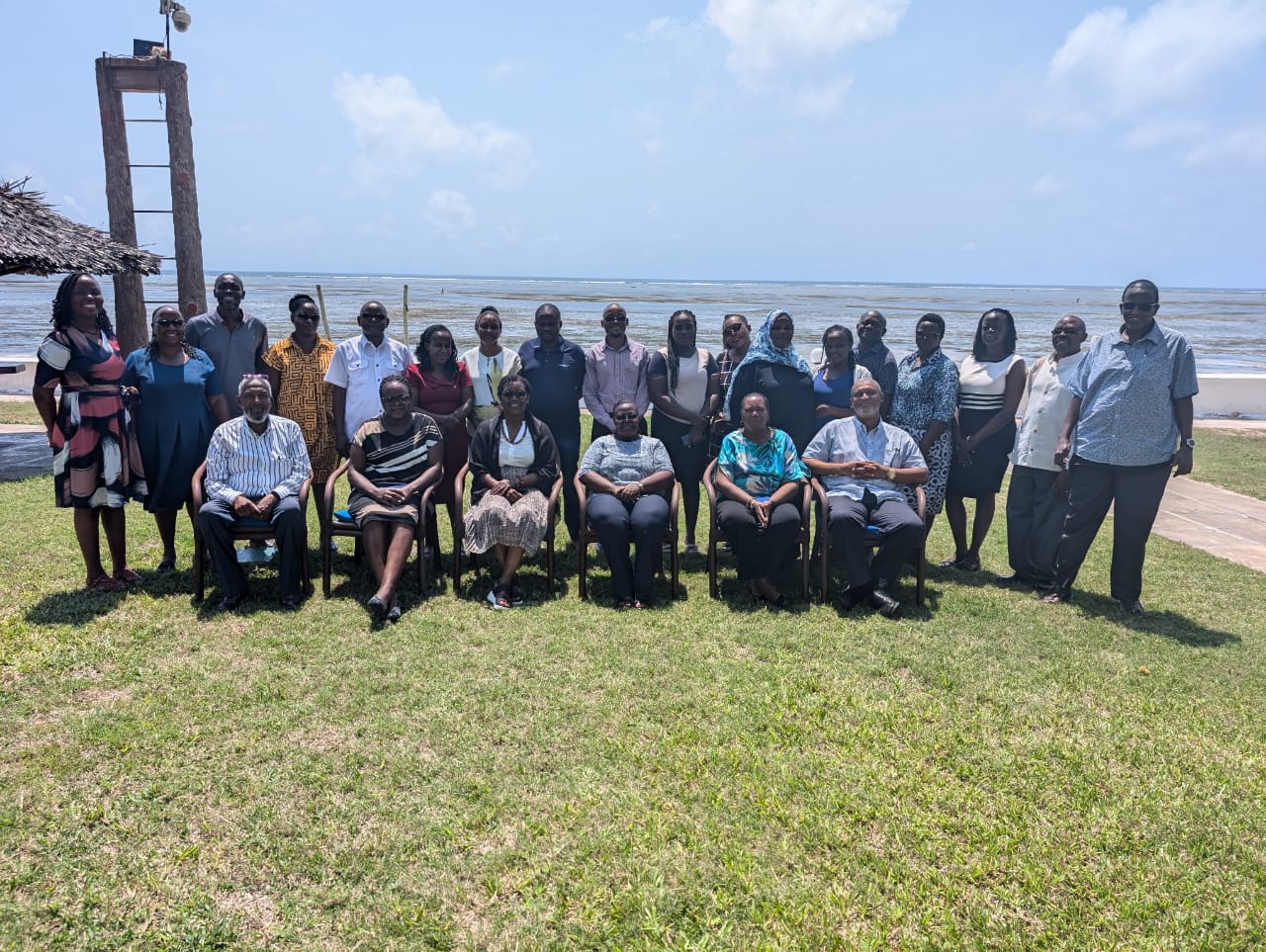Delegates led attending the third Blue Economy, Innovation and Investment Summit at the Sarova whitesands Hotel in Mombasa/Photo Credit Jane Meza
Mombasa’s sun drenched coastline may seem like a scene from paradise, but beneath the glittering waters lies an ocean of untapped opportunity.
The Blue Economy, once dismissed as a mere academic concept is now being hailed as Kenya’s key to unlocking a future of prosperity.
Maritime and Shipping Principal Secretary Geoffrey Kaituko, in championing this, believes the sector holds the promise of transforming Kenya into an economic powerhouse.
Speaking during the three day Blue Economy Innovation and Investment Summit held at the Sarova Whitesand hotel in Mombasa, in Kenya’s Coast, with the theme “Building an Inclusive Blue Future” Kaituko said Kenya’s Blue Economy, a potential sleeping giant, must awaken.
“We’re barely scratching the surface, this sector can generate 20 times more than what we are currently seeing.” he said.
The statistics findings according to the National Treasury, the Blue Economy contributes 2.5% to Kenya’s GDP, injecting KSh178 billion annually into the national economy. However, experts estimate it could contribute a staggering KSh500 billion yearly, if the right investments and strategies are implemented.
Kaituko envisions a future where shipbuilding, recycling, job creation and economic growth.
Additionally, he cited a recent project where a local company secured a contract to build a vessel for Uganda, creating 400 jobs in the process. “Shipbuilding alone can create thousands of jobs if we focus on developing the industry,” Kaituko said.
Yet, the potential isn’t limited to shipbuilding. Maritime transport remains one of the largest untapped areas as Kenya is currently losing KSh600 billion annually by not being fully engaged in the international and domestic shipping business.
“We need to be in the shipping business, both internationally and locally,” Kaituko emphasized. “We’re sitting on a goldmine, but we lack the infrastructure and investment to dig deeper.”
For coastal communities, the Blue Economy represents not only an opportunity but also a lifeline according to Salim Kazungu, a 43 year old fisherman from Kilifi who sees a brighter future.

Maritime and Shipping Principal Secretary, Geoffrey Kaituko addressing delegates at the Blue Economy Summit in Mombasa/Photo credit Jane Meza
“We’ve depended on fishing for years, but the ocean can offer us so much more, if the government invests in training us, we could work in shipping or even build boats. I want to see more locals like me benefiting from this new opportunity,” said Kazungu.
Salim’s dream is echoed by experts who believe in the sector’s transformative power. Dr. Lydia Mwangangi, a marine economist at the University of Nairobi, emphasized the need for a clear strategy.
“Kenya’s coastline is one of the richest in terms of resources, but we’ve underutilized it for decades. With the right investments in infrastructure, maritime education, and regulatory reforms, we can position ourselves as a regional hub for the Blue Economy.”
The Go Blue Project, supported by the European Union (EU), has been a catalyst in Kenya’s efforts to rejuvenate the maritime sector. EU Ambassador to Kenya Henriette Geiger, a key player in the Sh3.2 billion project, agreed with Kaituko’s sentiments.
“Many African countries are still living with their backs to the sea, and Kenya is no exception, but the potential here is enormous.” she stated.
The EU’s support has translated into practical solutions, such as the donation of five search and rescue boats to bolster Kenya’s maritime surveillance cautioning that international support is only part of the solution.
“No project lasts forever, Kenya must create a conducive environment for investments and ensure that local and national governments sustain these projects,” she said.
Kaituko’s exuded confidence sharing his passion, vision, and his unrelenting focus on unlocking the vast potential of the ocean saying such forums could be the spark that finally wakes this sleeping giant.
“We are at the threshold of something big, The Blue Economy is Kenya’s next frontier, and with the right investments, it will change the trajectory of this nation,” he said.

EU Ambassador Henriette Geiger Champions Investment and Innovation in Kenya’s Blue Economy at Mombasa Summit/Photo credit Jane Meza
With locals like Ahmed ready to dive into new opportunities, experts like Wangari Theuri Senior Program Manager at BlueBiz, Technoserve Kenya guiding the way, and a committed government standing firm, Kenya could soon find itself at the helm of a billion-shilling Blue Economy, worthy for a nation ready to reclaim its maritime glory.






